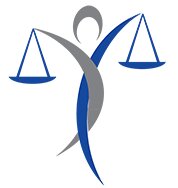Best Professional Malpractice Lawyers in San Fernando
Share your needs with us, get contacted by law firms.
Free. Takes 2 min.
List of the best lawyers in San Fernando, Trinidad and Tobago
About Professional Malpractice Law in San Fernando, Trinidad and Tobago:
Professional malpractice in San Fernando, Trinidad and Tobago refers to the negligence or misconduct of a professional in their field of expertise. This can include doctors, lawyers, accountants, engineers, and other professionals who provide services to the public. When a professional fails to meet the standard of care expected in their profession, they may be held liable for damages caused to their clients.
Why You May Need a Lawyer:
You may need a lawyer if you believe you have been a victim of professional malpractice. A lawyer can help you assess your case, gather evidence, and navigate the legal process to seek compensation for any damages you have suffered. It is important to consult with a lawyer experienced in professional malpractice cases to ensure your rights are protected.
Local Laws Overview:
In San Fernando, Trinidad and Tobago, professional malpractice cases are governed by the laws of the country as well as professional regulations set forth by professional bodies. It is important to understand the relevant laws and regulations that apply to your case, as they will impact how your case is handled and the potential outcomes.
Frequently Asked Questions:
1. What is considered professional malpractice in San Fernando, Trinidad and Tobago?
Professional malpractice is when a professional fails to meet the standard of care expected in their field, resulting in harm to a client. This can include errors in judgment, negligence, or intentional misconduct.
2. How can I prove professional malpractice in a legal case?
To prove professional malpractice, you need to show that the professional had a duty of care to you, they breached that duty, and the breach of duty caused harm or damages to you. Evidence such as medical records, emails, and witness statements can help support your case.
3. What damages can I recover in a professional malpractice case?
You may be able to recover damages for medical expenses, lost income, pain and suffering, and other losses incurred as a result of the professional malpractice.
4. Is there a time limit for filing a professional malpractice case in San Fernando, Trinidad and Tobago?
Yes, there is a time limit, known as the statute of limitations, for filing a professional malpractice case. It is important to consult with a lawyer as soon as possible to ensure your case is filed within the necessary timeframe.
5. Can I file a complaint with a professional regulatory body for professional malpractice?
Yes, you can file a complaint with a professional regulatory body if you believe a professional has acted negligently or unethically. The regulatory body may investigate the complaint and take disciplinary action against the professional if warranted.
6. How long does a professional malpractice case typically take to resolve?
The length of time it takes to resolve a professional malpractice case can vary depending on the complexity of the case, the willingness of the parties to negotiate a settlement, and the court's schedule. Some cases may be resolved quickly through negotiation, while others may take months or even years to reach a resolution.
7. Can I settle a professional malpractice case out of court?
Yes, you can choose to settle a professional malpractice case out of court through negotiation with the other party. This can be a faster and less costly option than going to trial, but it is important to consult with a lawyer to ensure you are receiving a fair settlement.
8. How much does it cost to hire a lawyer for a professional malpractice case?
The cost of hiring a lawyer for a professional malpractice case can vary depending on the complexity of the case, the lawyer's experience, and the fee structure agreed upon. Some lawyers may work on a contingency fee basis, where they only get paid if you win your case, while others may charge an hourly rate or flat fee.
9. What are the potential consequences for a professional found guilty of malpractice?
A professional found guilty of malpractice may face disciplinary action from their professional body, including suspension or revocation of their license to practice. They may also be required to pay damages to the injured party and may face civil or criminal charges depending on the severity of the misconduct.
10. How can I find a lawyer experienced in professional malpractice cases in San Fernando, Trinidad and Tobago?
You can find a lawyer experienced in professional malpractice cases by asking for recommendations from friends, family, or other professionals, searching online for lawyers in your area, and researching lawyers' backgrounds to ensure they have the necessary experience and expertise to handle your case.
Additional Resources:
If you require legal assistance for a professional malpractice case in San Fernando, Trinidad and Tobago, you may contact the Trinidad and Tobago Law Association for referrals to qualified lawyers in your area. Additionally, you can visit the Ministry of Legal Affairs website for information on legal resources and services available in the country.
Next Steps:
If you believe you have been a victim of professional malpractice and need legal assistance, it is important to consult with a lawyer as soon as possible to assess your case and determine the best course of action. A lawyer can help you understand your rights, gather evidence, and navigate the legal process to seek justice and compensation for any damages you have suffered. Remember, time is of the essence when filing a professional malpractice case, so do not hesitate to seek legal advice to protect your rights.
Lawzana helps you find the best lawyers and law firms in San Fernando through a curated and pre-screened list of qualified legal professionals. Our platform offers rankings and detailed profiles of attorneys and law firms, allowing you to compare based on practice areas, including Professional Malpractice, experience, and client feedback.
Each profile includes a description of the firm's areas of practice, client reviews, team members and partners, year of establishment, spoken languages, office locations, contact information, social media presence, and any published articles or resources. Most firms on our platform speak English and are experienced in both local and international legal matters.
Get a quote from top-rated law firms in San Fernando, Trinidad and Tobago — quickly, securely, and without unnecessary hassle.
Disclaimer:
The information provided on this page is for general informational purposes only and does not constitute legal advice. While we strive to ensure the accuracy and relevance of the content, legal information may change over time, and interpretations of the law can vary. You should always consult with a qualified legal professional for advice specific to your situation.
We disclaim all liability for actions taken or not taken based on the content of this page. If you believe any information is incorrect or outdated, please contact us, and we will review and update it where appropriate.









